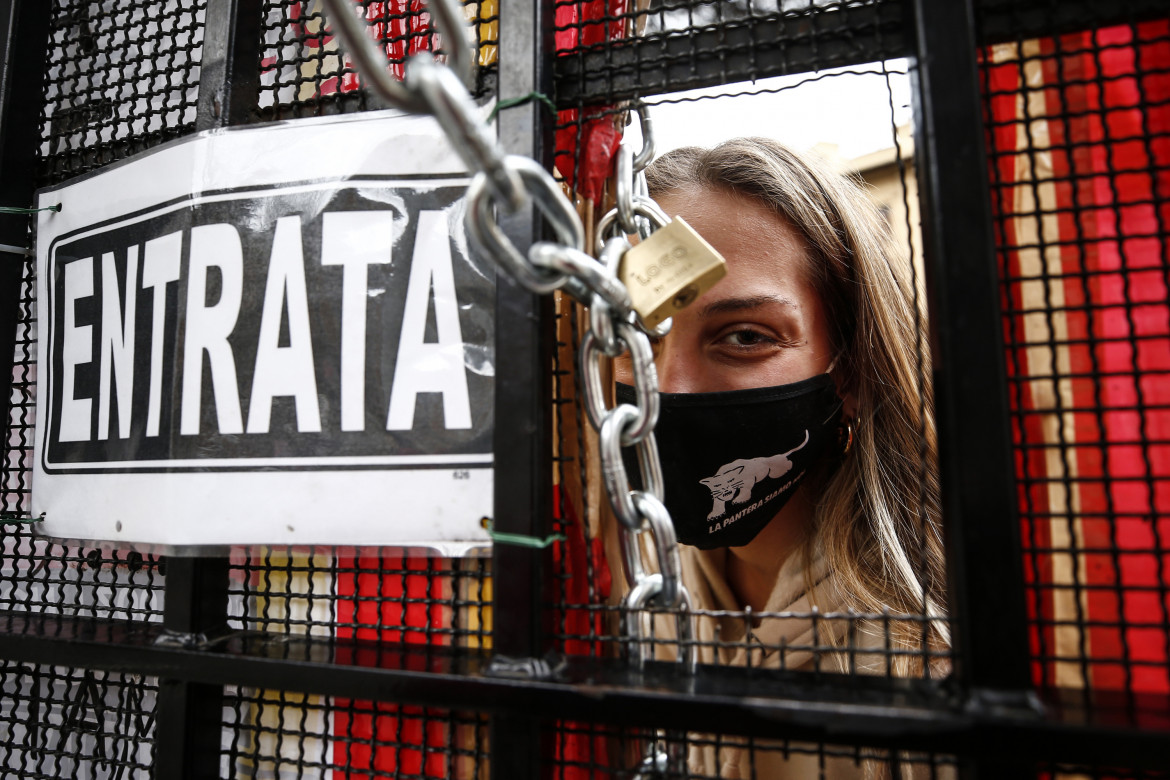Report
Teachers lead the way in Italy’s general strike
The salaries of Italian teachers are among the lowest in Europe, €350 below the average. The crumbs allocated for them will not even go to everyone, but to those who show ‘dedication’ to the work. Italy today increasingly resembles a Draghistan.

The fuse of the general strike of December 16, called by CGIL and UIL against the Draghi government’s budget law, was lit by the school unions. On Friday, the school unions organized marches to celebrate their strike: in Rome, with a procession from Piramide to the Ministry of Education in Viale Trastevere, in Naples in Piazza del Gesù, in Turin in Corso Vittorio Emanuele II, and then in Palermo, Catania, Cagliari.
The general secretaries of CGIL and UIL, Maurizio Landini and Pierpaolo Bombardieri, marched together with teachers, administrative staff and students. “The battle being fought by school workers,” Landini and Bombardieri said, “is part of a broader fight that we are all waging together against an unsatisfactory budget law, particularly on taxes, pensions, industrial policies, addressing the precariousness of work. The strike is an instrument of democratic participation, a tool to affect social dynamics, to grow our democracy. Together we can make a difference,” they concluded.
Friday’s strike was called on November 24 by Flc Cgil, Uil Scuola, Gilda and Snals, but not by Cisl, which went its own separate way, as it has been doing lately. The protest was also joined by Cobas and Cub Sur, which organized the marches, starting with that on the Ministry of Education in Viale Trastevere in Rome. In addition, the general strike of December 16, called by the national CGIL and UIL, will involve those working in universities, arts and music schools, researchers, non-state-run schools and vocational training institutions.
The protest against the €33 billion budget law that sets aside a paltry 0.62% for teachers and administrative staff, just over €10 per person in addition to the €87 already allocated, started from an issue that has been neglected by everyone in Italy, although it is always a focus on the talk shows: wages.
The salaries of Italian teachers, for example, are among the lowest in Europe, €350 below the average. The collective contract has been at a standstill for years. And the crumbs allocated for school teachers now will not even go to everyone, but to those who show “dedication” to the work. That might seem like a small detail, but having it written in the budget law has aroused indignation, as Francesco Sinopoli told il manifesto (25/11). It sounded like yet another humiliation for a million people already hurt by years of attacks, using a strategy already well known: the stick for the many and the carrot for the “deserving.”
This issue served as a catalyst for all the major issues of education that are not addressed by the Draghi government at all, but which have risen up to a furor in recent weeks, in the total indifference of the dominant media. But they have been forcefully raised by students, who are at the origin of this autumn struggle. The demonstration of November 19 that we reported on was the first break against the siren song of the “pax Draghiana” in a progressive direction, radically opposed to a libertarian American-alt-right approach which only sees “plotters” and “dictators.” That can only make one uneasy, as it attacks the fundamental idea of a strike, casting it as a transgression in which democracy itself is suspended. It’s not a path worth pursuing.
Now, the students and the school unions have gone to the risk of taking a step which hasn’t been seen since the demonstrations against Renzi’s “Good Schools” reform in 2015. A step not easy to take in a murky climate in which prophetic pronouncements about the government of the political technocrat Draghi are mixed with the most genuine reactionary conservatism of the ruling classes, amplified 24 hours a day. Italy today increasingly resembles a Draghistan.
The amendments that some in the mega-majority have promised to the unions are not enough, nor do the prospects given seem particularly promising. “Draghi has said that the total amount available to be allocated at this stage is no more than 600 million for absolutely everyone,” said Di Meglio (Gilda). “We don’t understand why the schools continue to be given a marginal role in this country.”
Originally published at https://ilmanifesto.it/sciopero-generale-il-primo-tempo-lo-gioca-oggi-la-scuola/ on 2021-12-10
